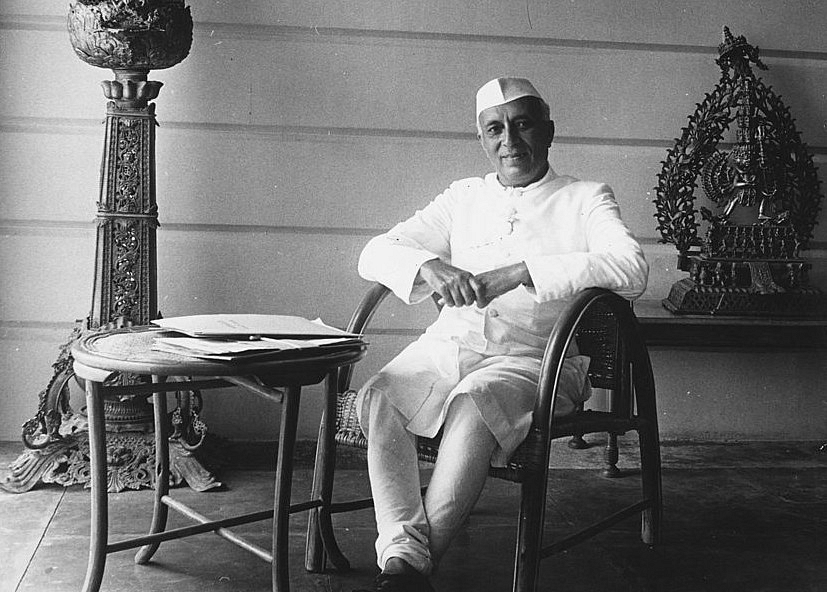Paromita Das
GG News Bureau
New Delhi, 29th May: As the specter of another Bharat-Pakistan conflict looms over South Asia, many observers are compelled to examine how we arrived at such a precarious junction. The headlines scream of cross-border terrorism, ceasefire violations, and nuclear brinkmanship. Yet, beneath the surface of current hostilities lies a deeper, historical causality—one shaped decisively by the fateful choices of Bharat’s first Prime Minister, Jawaharlal Nehru. Far from being merely missteps of an emerging leader, Nehru’s strategic blunders—especially on Kashmir and foreign policy—have snowballed into persistent national security challenges, culminating in the volatile Indo-Pak relationship we witness today.
Kashmir: The Original Sin
The Kashmir conflict is the most visible and visceral legacy of Nehru’s flawed statesmanship. In October 1947, when Pakistan-backed tribal militias invaded the princely state of Jammu and Kashmir, Maharaja Hari Singh signed the Instrument of Accession to join Bharat. Bharatiya troops were dispatched and made significant gains, pushing the invaders back.
At this critical juncture, Bharatiya forces were on the brink of reclaiming the entire territory. Yet, Nehru, reportedly acting under the advice of Lord Mountbatten and driven by his own utopian idealism, halted the military advance and internationalized the issue by taking it to the United Nations. The ceasefire line that emerged—now known as the Line of Control—effectively gifted Pakistan control over a third of Kashmir, an outcome that was neither strategic nor just.
This singular act of geopolitical naivety legitimized Pakistan’s claims over the region in the international arena and transformed what was a temporary insurgency into a multi-generational conflict. As of 2024, Bharat has fought three wars with Pakistan over Kashmir and endures a ceaseless insurgency in the Valley. According to the Ministry of Home Affairs, over 42,000 people, including civilians, security forces, and militants, have died in Kashmir-related violence since 1989. The seeds of this bloodshed were sown in Nehru’s decision to prioritize global optics over territorial integrity.
Betrayal by China: A Miscalculation That Changed Bharat’s Strategic Compass
If Nehru’s decision on Kashmir was the birth of Bharat’s border woes, his trust in China was its expansion. Despite intelligence and diplomatic red flags, Nehru clung to the romantic notion of “Hindi-Chini Bhai Bhai.” He even dismissed Sardar Patel’s prophetic warning about Chinese intentions on Bharat’s northern frontier.
The result was catastrophic. In 1962, China launched a surprise attack across the Himalayas, killing over 3,250 Bharatiya soldiers and occupying 43,000 sq. km of territory in Aksai Chin. This was a humiliating blow that shattered Bharat’s regional standing. Even more damaging was how this loss emboldened Pakistan to press its claims on Kashmir, leading to the Indo-Pak wars of 1965 and 1971, and eventually the Kargil conflict of 1999.
China’s aggression solidified the China-Pakistan nexus, resulting in projects like the China-Pakistan Economic Corridor (CPEC) that today run through Pakistan-occupied Kashmir, directly undermining Bharatiya sovereignty.
The UN Security Council Seat: A Missed Geopolitical Masterstroke
Nehru’s reluctance to accept a permanent seat at the UN Security Council, as revealed in declassified communications, was not merely an act of poor judgment—it was a monumental strategic failure. The offer, floated through both American and Soviet channels, could have placed Bharat in the top echelon of global diplomacy. Nehru declined the seat, reportedly to avoid offending China.
Today, Bharat’s bid for UNSC reform remains stalled, with China consistently blocking its elevation. Had Nehru seized the opportunity in the 1950s, Bharat might have had the clout to rally the international community on Kashmir, Tibet, or even counter Pakistan’s propaganda in global forums.
Non-Alignment and Pakistan’s Rise as a US Proxy
Nehru’s doctrine of non-alignment, while philosophically appealing, proved strategically hollow in a world increasingly defined by Cold War binaries. By spurning military cooperation with the West, Bharat inadvertently pushed the United States into Pakistan’s arms. Between 1954 and 1971, Pakistan received over $3.5 billion in US military aid, much of it used to build capacity against Bharat.
This allowed Pakistan to wage proxy wars and sponsor terrorism under the umbrella of strategic support from the West. Even in 2023, as Bharat confronts insurgency and cross-border strikes, American F-16s fly over Pakistani airspace, a legacy of decades of alignment born out of Bharat’s early isolationism.
Nehru’s Idealism vs. Realpolitik: An Unfit Combination
While Nehru’s intentions may have been noble—ensuring peace, building institutions, and promoting democratic values—they were repeatedly undercut by a failure to grasp realpolitik. His economic model stifled private enterprise, creating a bloated bureaucracy rather than a dynamic economy. His selective commitment to democracy was evident in the dismissal of Kerala’s Communist government in 1959, and his tolerance of corruption undermined the moral authority of the Bharatiya state.
Worst of all, Nehru’s approach left Bharat militarily underprepared and diplomatically isolated at critical moments.
Time for Honest Reckoning
Nehru’s hagiographers often attribute his failures to “teething troubles” of a young democracy or the unavoidable legacy of Partition. But seven decades on, the consequences of those failures are too stark to ignore. Whether it’s the geopolitical instability in Kashmir, the hostile China-Pakistan alliance, or Bharat’s exclusion from key global forums, the throughline remains Nehru’s misplaced idealism.
History must judge leaders not only by their aspirations but by the impact of their actions. And Nehru’s actions, unfortunately, sowed the seeds of many of Bharat’s current strategic vulnerabilities.
The Present Conflict Is Nehru’s Echo
As Bharatiya soldiers defend the nation in the rugged terrains of the Himalayas and intelligence agencies thwart terror plots hatched across the western border, the echoes of Nehru’s miscalculations resound louder than ever. The Indo-Pak war-like scenario unfolding today is not merely a consequence of recent events but the culmination of foundational blunders. Nehru’s legacy, so often romanticized, must be dissected with honesty and clarity. Only then can Bharat truly course-correct and emerge from the shadow of its troubled post-independence past.


Comments are closed.